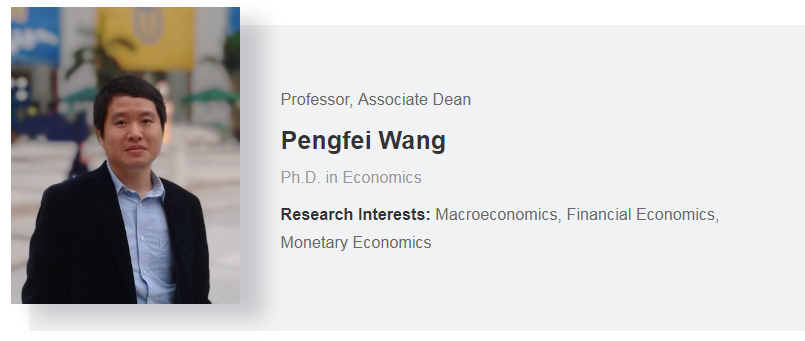In many ways, the world has moved on from the calamitous 2008 financial crisis triggered by the U.S. housing bubble. But the housing market worldwide has undergone a pendulum swing in the last decade. Is housing the business cycle? What is the link between commercial real estate prices and investment dynamics? According to PHBS Associate Dean Wang Pengfei, the latter has been largely unexplored at the macro level, although previous research has provided micro evidence that links the commercial real estate price to investment.
His paper “Discount Shock, Price-Rent Dynamics, and the Business Cycle” was recently published by
International Economic Review, in collaboration with Professor Miao Jianjun of Economics Boston University, and Professor Zha Tao of Emory University and Federal Reserve Bank of Atlanta. The paper reveals that commercial real estate prices fluctuate much more than rent and output do, and price-rent variation predicts long-horizon real estate returns.
However, traditional business-cycle shocks, such as shocks to technology and labor supply, cannot fully explain price-rent movements. Wang and coauthors develop a medium-size dynamic stochastic general equilibrium (DSGE) model and imbed two key ingredients: shocks to households’ discount rate and collateral constraints on firms’ production, making the model tractable to be estimated and improving its performance.
Further, they introduce a rental market of commercial real estate based on the assumptions that firms face collateral constraints when financing working capital, extending the model to explain asset pricing facts in the stock market. It shows that the rise of real estate prices relaxes a firm’s collateral constraint and thus facilitates its production. “Our estimation reveals that collateral values contribute to one third of the volatility of real estate prices while rents contribute very little.”
The most important factor, the authors find, is discount-rate shocks, “the only macroeconomic shocks driving the large movements of commercial real estate price relative to rent.” These can lead to price-rent fluctuations over the business cycle and can also generate the long-horizon predictability of excess real estate returns, serving as the empirically important source for the linkage between the real estate market and the business cycle.
 Follow this link to read the entire study
By Annie Jin
Follow this link to read the entire study
By Annie Jin
Edited by Priscilla Young
















